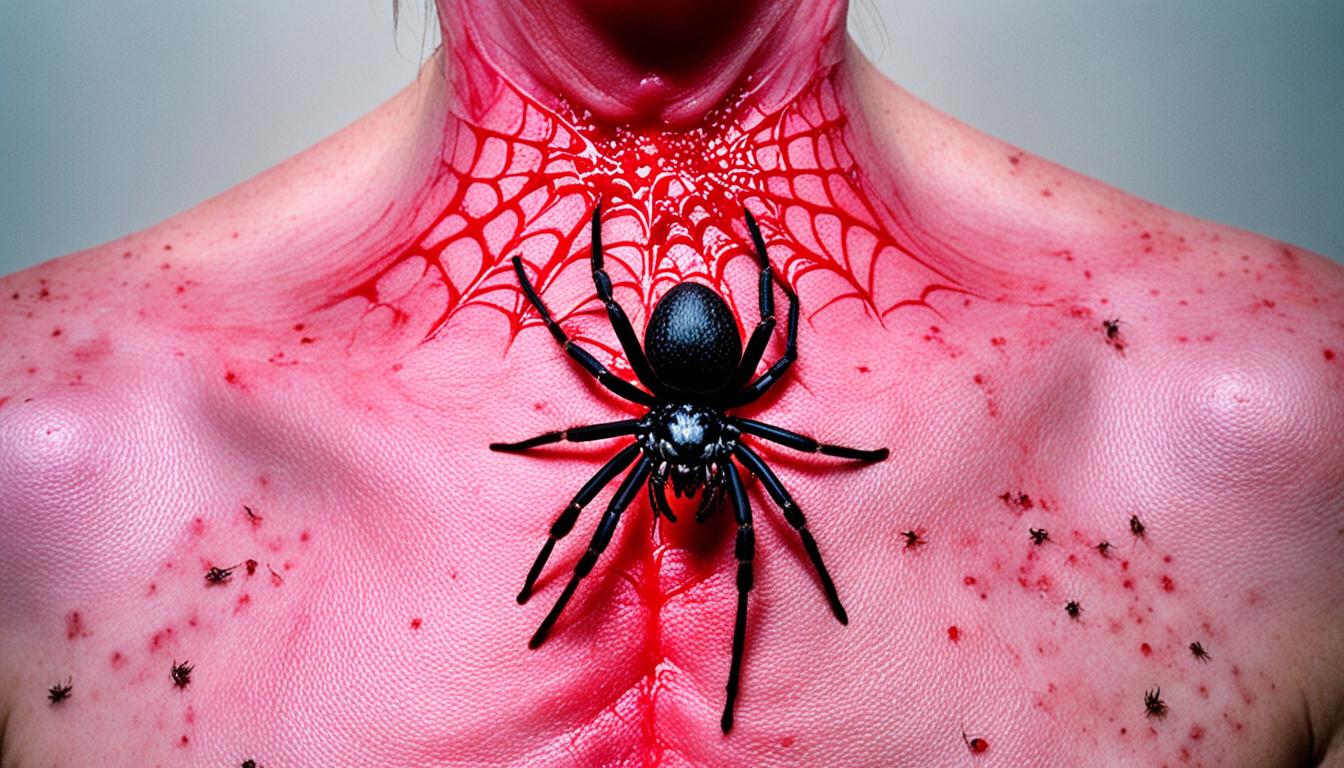Spider bites are not rare and can lead to various symptoms. They might cause complications like hemolytic anemia. This condition shows signs such as jaundice, dark urine, and anemia-related symptoms. It’s vital to diagnose these bites quickly. Diagnosis involves spotting certain lab results, like low hemoglobin. You also watch for increased lactate dehydrogenase, low haptoglobin, and maybe a positive direct antiglobulin test.
Key Takeaways:
- Spider bites can lead to various symptoms and complications, including hemolytic anemia.
- Prompt diagnosis of spider bites is crucial for effective treatment.
- Recognizing specific laboratory findings is essential for accurate diagnosis.
- Treatment options for loxoscelism-associated hemolytic anemia are still being researched.
- Systemic corticosteroids have shown some success in treating spider bite-related hemolytic anemia.
Brown Recluse Spider Bites and Systemic Complications
Bites from brown recluse spiders can cause many problems. These include issues just at the site and ones that affect your whole body. This happens most often in the Midwest, South, and West of the United States. While very serious problems are not common, they can be life-threatening.
Treating these bites may need things like a blood transfusion. There’s also a method that cleans the blood called plasma exchange. In some cases, using corticosteroids throughout the body was found to help.
Signs and Symptoms of Brown Recluse Spider Bites
- Localized pain and itching at the bite site
- Redness and swelling
- Development of a necrotic wound
- Systemic symptoms such as fever, chills, headache, and muscle pain
- Possible development of loxoscelism-associated hemolytic anemia
Treatment Options for Loxoscelism-Associated Hemolytic Anemia
The aim in treating these bites is to stop systemic issues and fix the anemia. Sometimes, you might need a blood transfusion. Plasma exchange and plasmapheresis are ways to clear the blood of harmful stuff and help with symptoms.
In certain cases, using systemic corticosteroids has made all symptoms go away. People’s health got a lot better.
Prevention and Precautions
Stopping brown recluse bites is key, especially where these spiders are found. Do things like:
- Wearing protective clothing, including long-sleeved shirts and pants
- Shaking out clothing and shoes before wearing them
- Using insect repellents
- Keeping outdoor areas clean and free of clutter
- Sealing any cracks or gaps in walls, doors, and windows to prevent spider entry
If you think you’ve been bitten by one or start to have odd symptoms, see a doctor quickly. Early care is critical.
Case Reports of Severe Spider Bites and Successful Treatments
Spiders can cause severe health issues like Loxoscelism. This can lead to skin damage, vomiting, diarrhea, and even kidney problems. Quick and thorough treatment is vital in these cases.
Doctors may use several treatments for Loxoscelism. These can include special oxygen therapy, cleaning the blood, and grafting skin. The goal is to tackle the many problems the bite might cause and ease the suffering.
Spotting and treating Loxoscelism early is key to a good recovery. Many specialists, like skin and toxicology experts, work together. This team effort ensures patients get the best care to avoid serious issues and get well.

